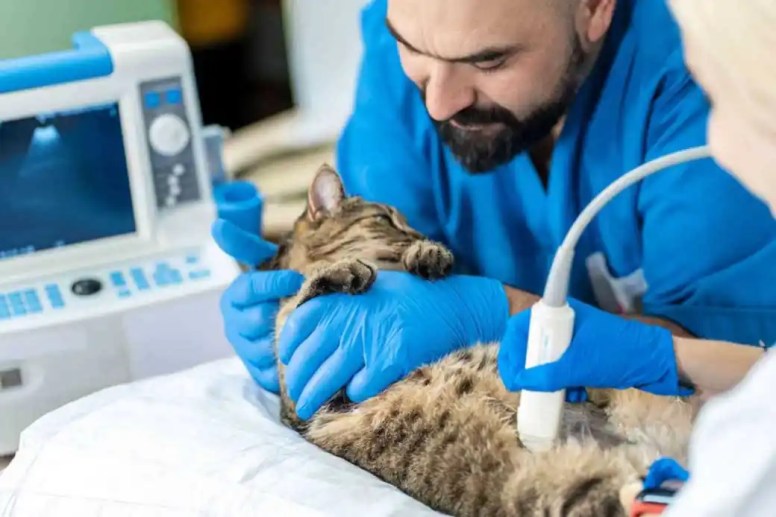Specialized Providers Supplied by Vet Greensburg for Pet Dogs of All Ages
Specialized Providers Supplied by Vet Greensburg for Pet Dogs of All Ages
Blog Article
Professional Tips for Animal Nourishment From a Vet
Comprehending the dietary requirements of family pets is vital for their overall health and longevity. Vets advise a well balanced diet plan that caters to individual variables such as activity, breed, and age level. Yet, with the wide variety of pet dog food options offered, pet owners often locate themselves browsing a landscape raging with misinformation and misconceptions. As we discover essential pointers from vet specialists, it ends up being noticeable that proper nourishment is not just about what is fed however involves a deeper understanding of each animal's special needs. What essential understandings could transform your approach to pet nourishment?
Recognizing Nutritional Demands
Understanding the nutritional requirements of pet dogs is basic to ensuring their total wellness and well-being. Much like humans, pets need a well balanced diet that gives necessary nutrients, including proteins, fats, vitamins, minerals, and carbohydrates. These nutrients play crucial roles in numerous physical features, such as energy manufacturing, immune feedback, and tissue repair work.
Proteins are vital for growth, repair, and upkeep of body tissues - Vet Greensburg. They are composed of amino acids, some of which are vital and need to be gotten from food. Fats offer a concentrated source of energy and are important for the absorption of fat-soluble vitamins. When they consist of fiber., carbs serve as a main energy resource and can support gastrointestinal health and wellness.
Each pet may have unique demands based on aspects such as age, type, task level, and health status. It is important to seek advice from with a veterinarian to establish the particular dietary requirements tailored to your family pet's specific requirements, guaranteeing they obtain ideal nourishment throughout their life stages.

Picking the Right Food
Selecting the ideal food for pets is an essential aspect of satisfying their nutritional needs. It is important to consider aspects such as age, health, dimension, and breed status when picking a family pet food. Kitties and young puppies require solutions that sustain development and development, while adult pet dogs require well balanced diets that preserve their wellness. Elderly pets might take advantage of foods made to resolve age-related issues, such as joint health or weight monitoring.
When reviewing animal food options, seek items that meet the Association of American Feed Control Officials (AAFCO) criteria, which guarantee that the food offers balanced and full nutrition. Ingredients ought to be high-quality, with genuine meat as the primary resource of protein. Stay clear of foods with excessive fillers, artificial ingredients, or by-products, as these can interfere with the total nutritional value.
Consulting with a veterinarian can give customized suggestions based on your pet's particular demands. In addition, transitioning in between foods need to be done slowly to prevent stomach distress. By taking these actions, animal owners can ensure that they are offering their fuzzy friends with the very best possible nourishment for a healthy and balanced and satisfied life.
Common Misconceptions Concerning Family Pet Food
Debunking misunderstandings surrounding pet food is important for making sure optimal nourishment for our hairy companions. One widespread misconception is that all grain-free diet plans are superior for animals. In truth, grains can supply necessary nutrients and are not inherently hazardous. A balanced diet plan can consist of grains, supplied they are not causing any type of intolerances or allergic reactions.

Additionally, many family pet proprietors believe that "costs" or "all-natural" tags assure better. Nonetheless, these terms are often uncontrolled and do not always show remarkable nutritional value. It is important to look at ingredient listings and nutritional profiles instead.
Special Factors To Consider for Various Breeds
When it comes to pet nutrition, unique considerations have to be considered for different breeds, as each type can have distinct navigate to these guys nutritional requirements and sensitivities. For example, huge types such as Wonderful Danes and Saint Bernards are prone to bone and joint problems and might profit from diets created to sustain joint health and wellness, frequently featuring components like glucosamine and omega fats. On the other hand, small types like Chihuahuas might require higher calorie densities to fulfill their energy levels, demanding formulas that are abundant in nutrients yet reduced wholesale.
In addition, specific types might be predisposed to certain wellness concerns, such as food allergies or level of sensitivities. Breeds like Labrador Retrievers might deal with weight problems, calling for careful part control and a balanced diet regimen to keep a healthy weight. On the various other hand, types such as Dachshunds may be a lot more at risk to why not look here spinal issues, prompting a need for diets that advertise back health and wellness and weight management.
Eventually, understanding these breed-specific dietary requirements is essential for animal proprietors. Consulting with a veterinarian can aid in selecting the most ideal diet tailored to an individual pet's wellness, breed, and age status, making sure ideal nutrition and well-being.
Importance of Normal Vet Check-Ups
Understanding the special nutritional needs of different breeds is just one aspect of accountable family pet possession; regular veterinary check-ups play a crucial function in maintaining overall health and wellness. These exams are important for early discovery of health issues, ensuring that any possible problems are attended to prior to they come to be serious. Normal visits permit veterinarians to check your animal's weight, oral health, and vital signs, which are critical signs of overall health.
Furthermore, regular check-ups make it possible for vets to give tailored dietary advice based on your pet dog's specific wellness status - Vet Greensburg. As pet dogs age, their nutritional needs may transform, and changes might be required to avoid weight problems or nutrient shortages. Precautionary treatment, including vaccinations and parasite control, is additionally check that a fundamental component of these check outs, guarding your pet dog from various illness
Along with physical assessments, these visits provide an exceptional chance for animal proprietors to review behavior modifications or problems about their pet dog's eating routines. By prioritizing routine veterinary exams, pet proprietors can ensure a much longer, much healthier life for their fuzzy friends, ultimately boosting their high quality of life.
Verdict
Finally, making sure optimal family pet nutrition needs an extensive understanding of individual dietary demands, appropriate food option, and awareness of common myths. Unique considerations for different breeds need to be represented, and normal veterinary exams play a crucial duty in keeping an eye on health and nutritional adjustments. Abiding by AAFCO standards and talking to vets before making nutritional modifications will improve the well-being of animals, ultimately contributing to their long life and top quality of life.
With the multitude of animal food choices offered, pet proprietors frequently locate themselves navigating a landscape rife with misinformation and misconceptions. Each pet may have one-of-a-kind requirements based on variables such as age, type, activity degree, and health and wellness status. It is vital to consider variables such as age, wellness, dimension, and breed standing when picking an animal food. Elderly pets might benefit from foods made to deal with age-related issues, such as joint health or weight management.
Comprehending the special dietary needs of different breeds is only one element of responsible animal possession; normal veterinary check-ups play a vital function in keeping total wellness.
Report this page